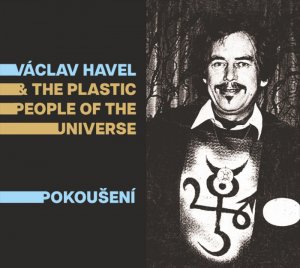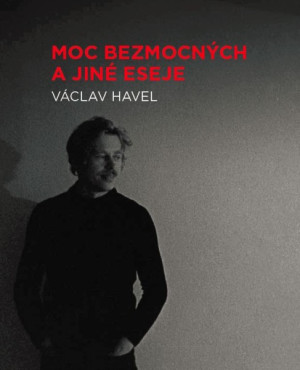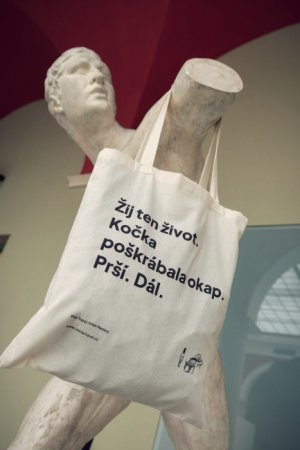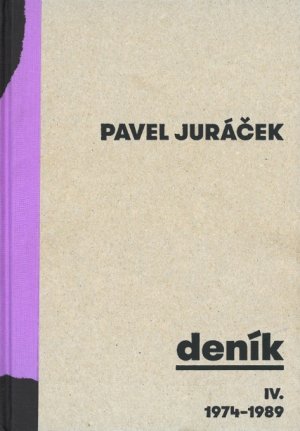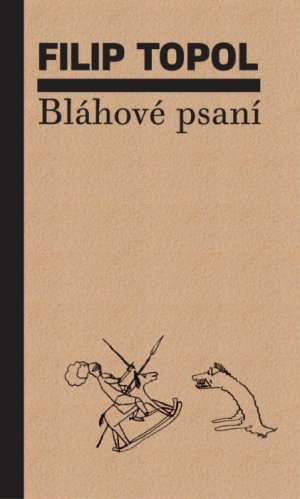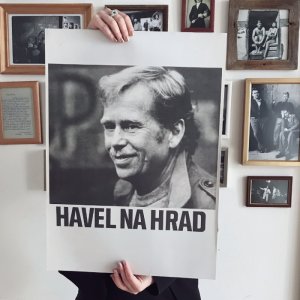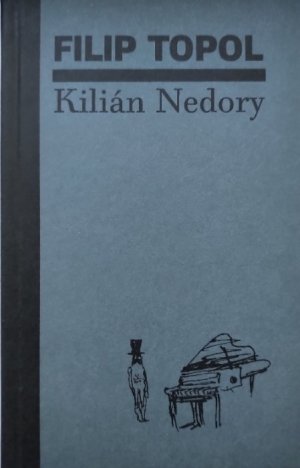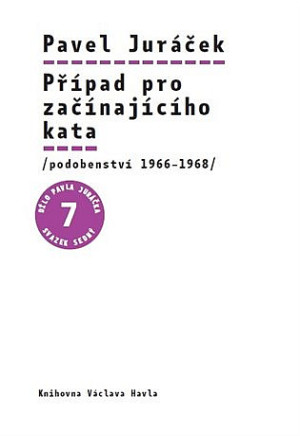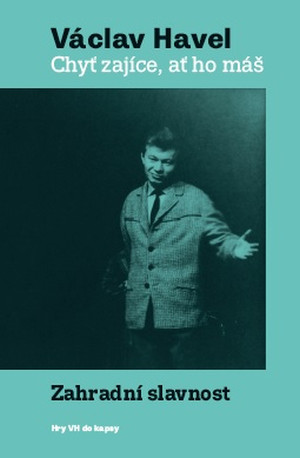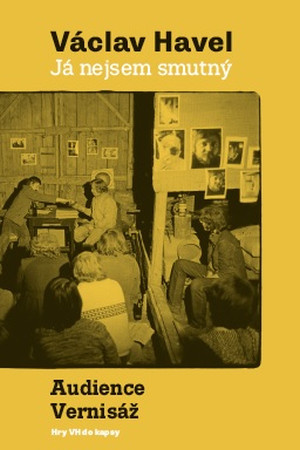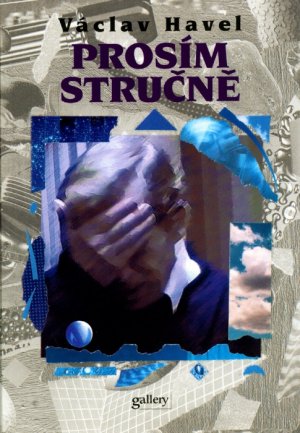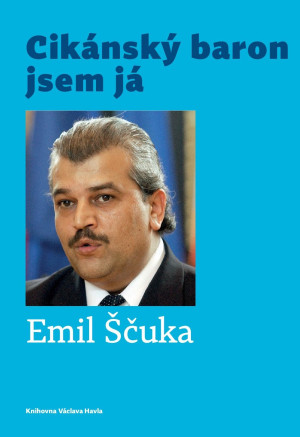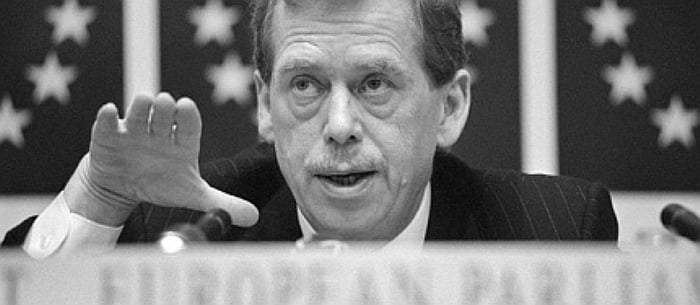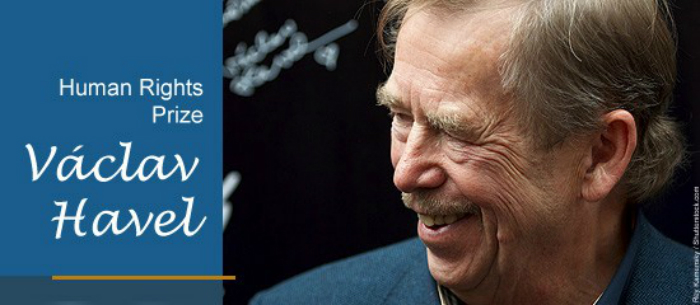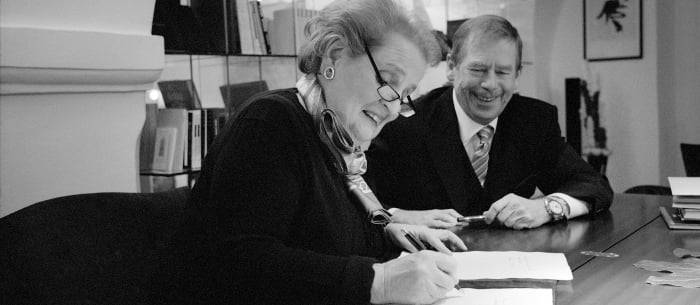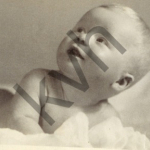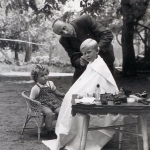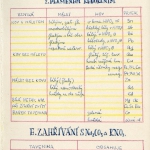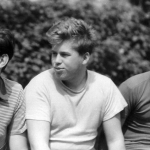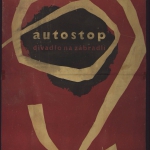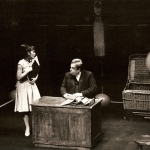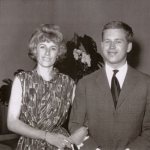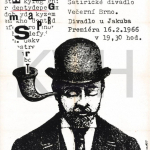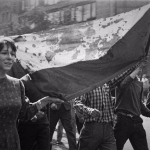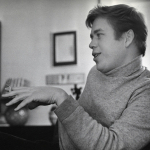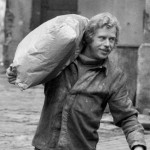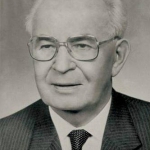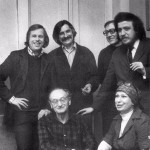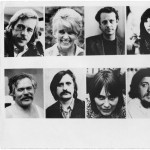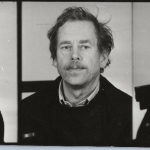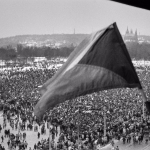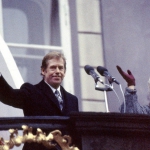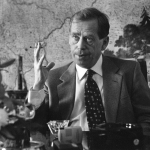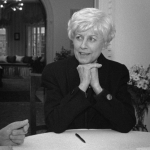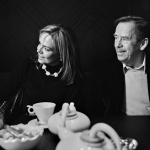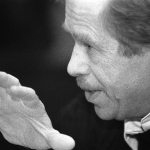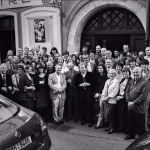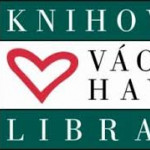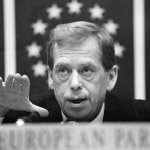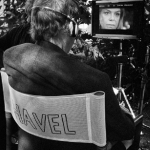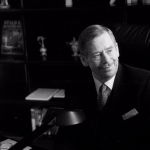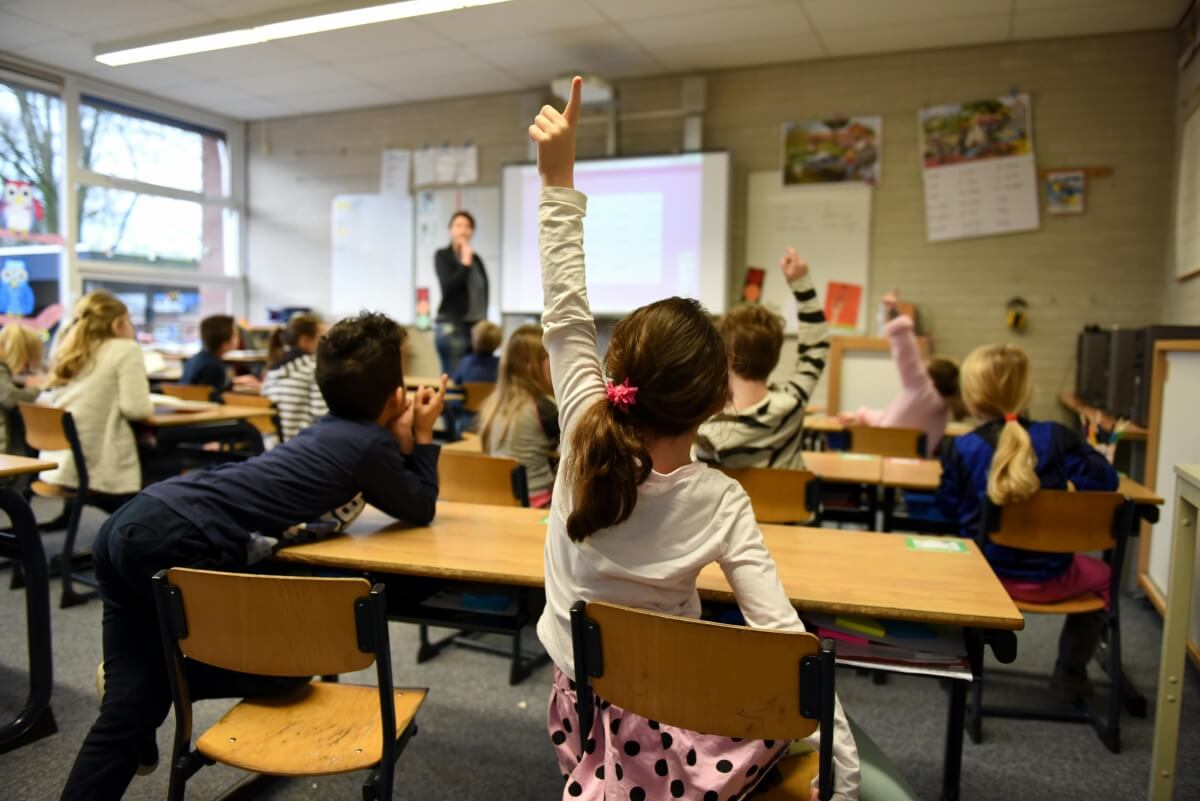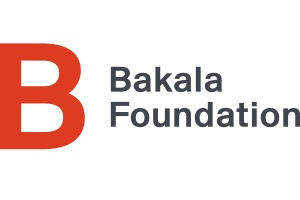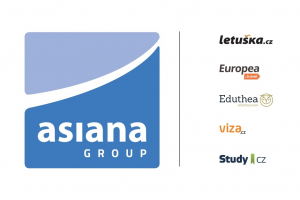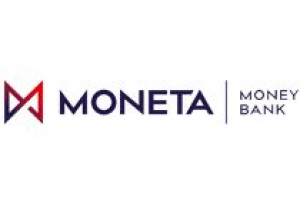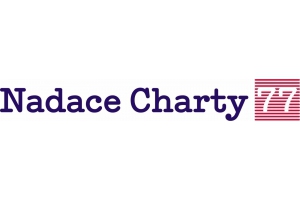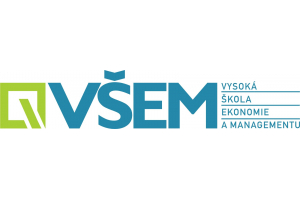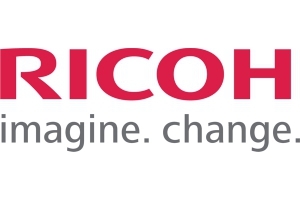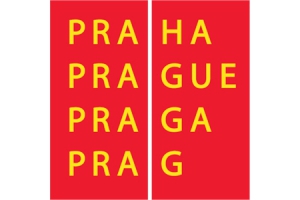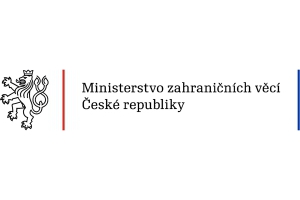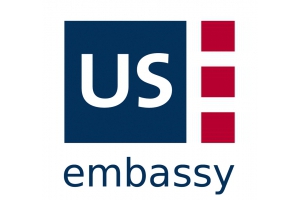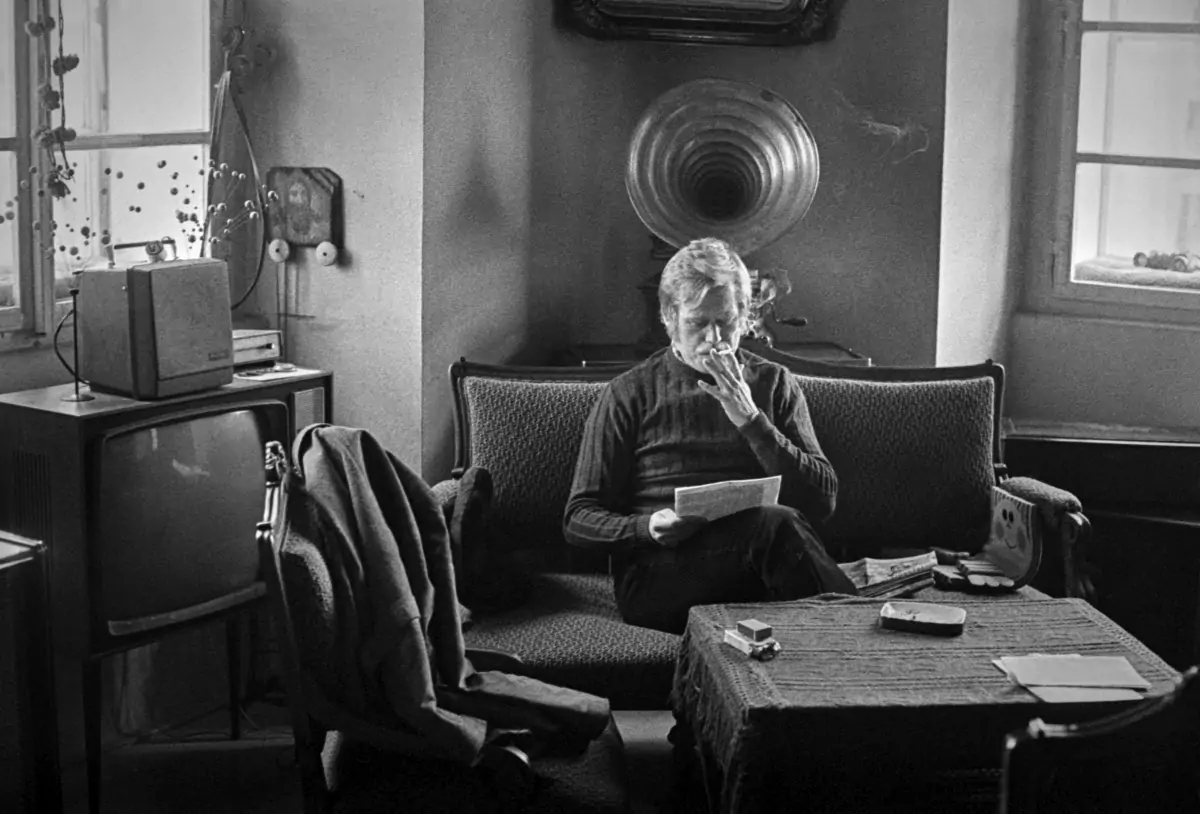
Club / News / Program
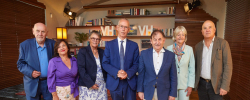
Three candidates shortlisted for the 2023 Václav Havel Prize 05/09/23
The selection panel of the Václav Havel Human Rights Prize, which rewards outstanding civil society action in defence of human rights in Europe and beyond, has today announced the shortlist for the 2023 Award. Meeting in Prague today, the panel – made up of independent figures from the world of human rights and chaired by the President of the Parliamentary Assembly of the Council of Europe (PACE) Tiny Kox – decided to shortlist the following three nominees, in alphabetical order: More
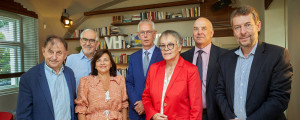
Three candidates shortlisted for the 2022 Václav Havel Human Rights Prize 06/09/22
The discussion among the seven-member jury helmed by the president of the Parliamentary Assembly of the Council of Europe centred on the importance of the issue of human rights during this tense period. The finalists include Vladimir Kara-Murza, a political prisoner and leading Russian democracy campaigner; Ukraine’s 5 AM Coalition, which gathers evidence of human rights abuses stemming from Russia’s invasion of the country; and Hungary’s Rainbow Coalition defending LGBTQIA+ rights. “This year’s selection reflects the central role that human rights play in the current European crisis,” says Michael Žantovský, jury member and executive director of the Václav Havel Library, which bestows the prize in cooperation with the Parliamentary Assembly of the Council of Europe and Nadace Charty 77.
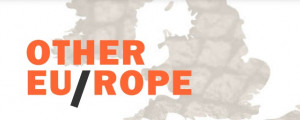
The Other Europe 27/04/22
Dear Friends, After three years we have completed the international project The Other Europe, during which, in cooperation with partner institutions, we have processed and made public recordings of interviews shot in 1987 and 1988 behind the Iron Curtain, and in exile, with important representatives of the opposition and the arts, as well as random citizens. Over those three years we have prepared video, audio and text of 106 interviews in speakers’ native languages and English translation. Despite public health restrictions in the Covid period, we have jointly prepared 16 international conferences and public presentations in six Central and Eastern European states. More
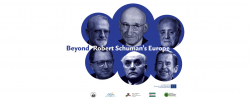
From Schuman to Havel – what next? 16/02/22
The Václav Havel Library is a proud partner of the project Beyond Robert Schuman’s Europe More
Program for June 2014<
entry-free
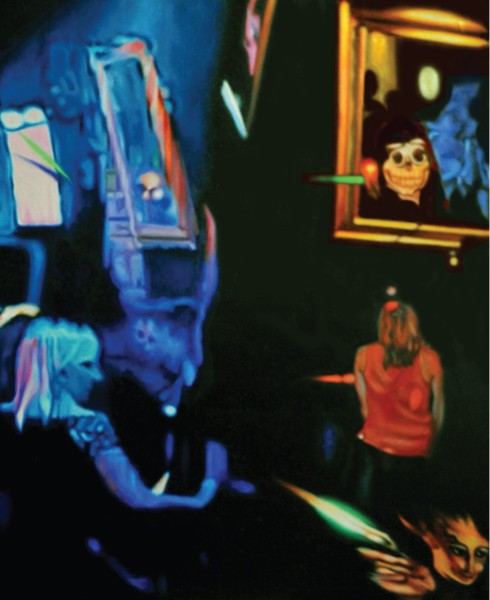
Zbyněk Benýšek: The Waiting room Triptych & new paintings
- Where: Vaclav Havel Library, Řetězová 7, Prague
- When: May 6, 2014, 19:00 – June 1, 2014, 18:00
Opening of exhibition of works by Zbyněk Benýšek. Introduction by Vratislav Brabenec.
Zbyněk Benýšek (born 1949, Olomouc) is a painter, graphic artist, poet, lyricist and musician, a Renaissance man in fact, a member of the artistic generation that entered the scene in the 1960s, influenced by the Western impulses of beat poetry, rock’n’roll and hippy culture. From 1964 to 1968, he studied at the Secondary School of Applied Arts in Brno. In 1970, when he succeeded in getting an exemption from military service, he attended lectures at Palacký University in Olomouc. He later relocated to Prague, where he moved in underground and folk circles. In 1977 he signed Charter 77 and was later employed as a stoker, janitor and night watchman. In 1982 he went into exile in Vienna, where he set up and ran for a decade the tamizdat arts review Paternoster. In 1992 he moved back to Prague. In the last 20 years he has written several screenplays for Czech Television and brought out seven books of poetry and prose, a collection of song lyrics and the substantial novel, Loutky boží (Puppets of God).
The exhibition The Waiting Room Triptych & New Paintings presents a selection from the artist’s current work and features three triptychs and several accompanying paintings. Benýšek’s oil paintings are traditionally described as hyper-realistic or photorealistic. This classification mainly stems from the aesthetic of smooth and precise painting seen in his 1970s and 1980s pictures. Later, however, Benýšek began approaching his work in an extremely free manner and, by contrast with his photorealistic works, employed free composition. By contrast with the emptiness and absurdity of his photorealistic works, Benýšek’s pictures were distinguished by a surreal and hidden significance, which has remained with him to this day.
The artist’s main inspiration comes from the visual world that surrounds him. The exhibition features paintings capturing scenes in late-night bars, a kind of bar landscape full of glaring fluorescent lights, shiny surfaces and neon bar signs. The organic and curved subjects and figures captured in various ways through convex lenses are placed in elusive collapsing spaces. Reflections and paintings within paintings are a repeated motif and reflect the theme of grasping reality and relating to it (in which Benýšek’s interest in astrophysics is a determining factor). At the same time, some of the works, influenced by micro-photographic pictures, verge on abstract forms that can capture the complicated structures of both the microcosm and the macrocosm.
Benýšek’s paintings also include a world of people, a world of morbid clowns in horror masks trapped in a depersonalised and the cold realm of technical apparatuses. However, they have to learn to accept their lot in life. Just like Ahasver, the eternal pilgrim, who is the central motif of two paintings. Similarly, the Waiting Room triptych (2013) introduces us to a bar environment the first part of which captures wasteful revelries and pleasure seeking. In the second the figures are trapped in a snare of tense waiting. In the final scene they don’t need to wait; for those present it has already arrived.
Marianna Placáková

Debate with Respekt – politics and the media
- Where: Vaclav Havel Library, Řetězová 7, Prague
- When: June 2, 2014, 19:00 – 21:00
How did Andrej Babiš and other new owners changed the Czech media?
Media outlets in the Czech Republic are returning to Czech hands. However, along with their political ambitions the new owners are bringing strong fears of loss of independence. Guests: Sabina Slonková (MF Dnes) and Jindřich Šídlo (Hospodářské noviny).
Respekt editor Tomáš Sacher will chair the debate.
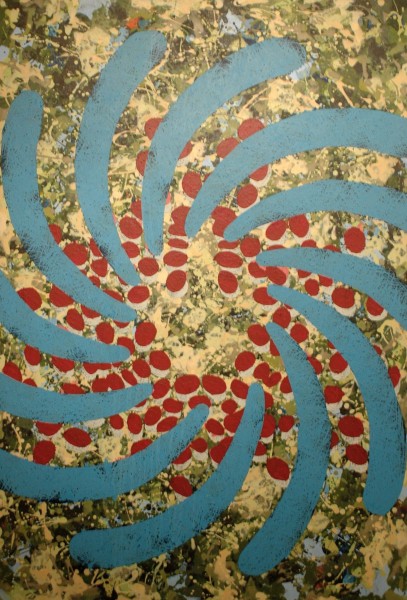
Olaf Hanel: About and around and otherwise
- Where: Vaclav Havel Library, Řetězová 7, Prague
- When: June 3, 2014, 19:00 – June 28, 2014, 18:00
Opening of exhibition of work by Olaf Hanel.
Music: Šporkovo trio – Antonín Rejcha, Trio B major for two horns and bassoon,
Zuzana Bandúrová, flute: Marián Zavarský, Talking to the Silver God
THE EXHIBITION RUNS UNTIL 28.6.2014.
EXILES INTERNAL AND EXTERNAL IV
ABOUT AND AROUND AND OTHERWISE
3. 6. 2014 – 28. 6. 2014
OLAF HANEL
A painter, graphic artist, sculptor, curator and art critic, Olaf Hanel (born 1943, Prague) is one of the leading representatives of Czech action art of the 1970s and 1980s. From 1960 to 1965 he studied at a teaching college in Pardubice. Between 1967 and 1970 he was director of the Gallery of Visual Art in Havlíčkův Brod, where he prepared shows for the likes of Ladislav Novák, Bohdan Lacina, Naděžda Plíšková and Bohuslav Reynek. It was in this period that he began creating his own conceptual projects. Following a move to Prague in 1971 he became part of the circle around the Crusaders’ School of Pure Humour Without Jokes, whose members also took part in his events. After signing Charter 77 he was employed as a water pumper and stoker. In February 1979 he emigrated to Vienna, from where he moved to Canada’s Montreal six months later. There, between 1982 and 1983, he worked occasionally as a printer from Sixty Eight Publishers. He created land art sculptures and began painting. In 1990 he moved back to Prague, where for almost 20 years he worked as curator of the Czech Museum of Fine Arts.
Olaf Hanel’s early work is linked to humorous drawings and caricatures. Drawing also influenced his later work, specifically conceptual events in which he worked with linear constructions and graphic ideas. In the mid-1970s he ceased doing action art for political reasons and began looking for new means of expression. A visit to the southern French town of Vence was a formative moment; there, inspired by the creative genius loci and local vegetation, he began producing abstract paintings employing a kinetic method.
The exhibition About and Around and Otherwise presents acrylic paintings by Hanel from the last 20 years inspired by just these experiences of the landscape. They are present in two aspects. The first depicts the world of nature, organic movement, growth and demise and constantly transforming energy. Against a background of random colour stains, the prototype for which was the artist’s experience of vistas of foliage, centrifugal and centripetal spirals, dynamic circles and ovals swirl about. In the second of them this natural world comes up against the objective world. By means of projections and cutouts from masking tape, randomly selected subjects leave nothing but silhouettes, impressions of form against a dappled background of chaos.
Though perhaps it may not seem so at first glance, these acrylic paintings have a great deal in common with Hanel’s early actions. Their Pollock-style creation is based on kinetic energy and a temporal dimension, while they also contain a Dadaist principle, playing with words and meaning. In one painting from a triptych depicting bells, that subject is brought out in silhouette and with it, following the model of a descriptive scheme, appear the words crown, hood, neck, referring to its individual parts. This is Hanel’s central theme: the feud of rationality and descriptiveness with the elemental ungraspability of the world. At the same time, they can have shapes and subject matter that is of symbolic tone or ritual function.
Marianna Placáková
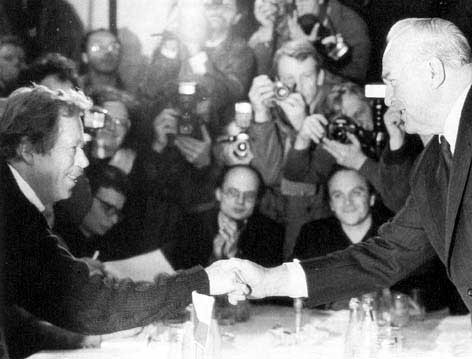
The Most Initiative
- Where: Vaclav Havel Library, Řetězová 7, Prague
- When: June 4, 2014, 19:00 – 21:00
This loose continuation of a year-round series on the activities of civic groups in the ground-breaking year of 1989 focuses on iniciativa MOST (the MOST Initiative).
Lucie Vopálenská will host a debate with Michal Horáček and Michael Kocáb.
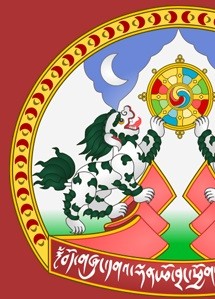
Tibetan exile wants to defend the interests of all Tibetans
- Where: Communication space Školská 28, Praha 1
- When: June 4, 2014, 17:30 – 19:00
Přijďte pohovořit se zástupci tibetského exilového parlamentu o jejich pracovních cílech, problémech a zkušenostech.
Zúčastní se členové shromáždění Tibetských lidových zástupců:
Khenpo Lopon Sonam Tenphel, Taglung Tsang Karma Chopel, Dawa Phunkyi, Sonam Gyatso.
Khenpo Lopon Sonam Tenphel, zástupce předsedy Shromáždění tibetských lidových zástupců
Taglung Tsang Karma Chopel, působil jako předseda první tibetské politické strany – Národní demokratické strany Tibetu (1994-96) a předseda Shromáždění tibetských lidových zástupců (ve 13. funkčním období)
Dawa Phunkyi, v minulosti působil jako předseda regionální organizace Tibetského kongresu mládeže a generální tajemník Národní demokratické strany Tibetu
Sonam Gyatso, působil jako učitel, editor, reportér a překladatel
More information about the panelists
Organizováno ve spolupráci se spolky Lungta a Potala.
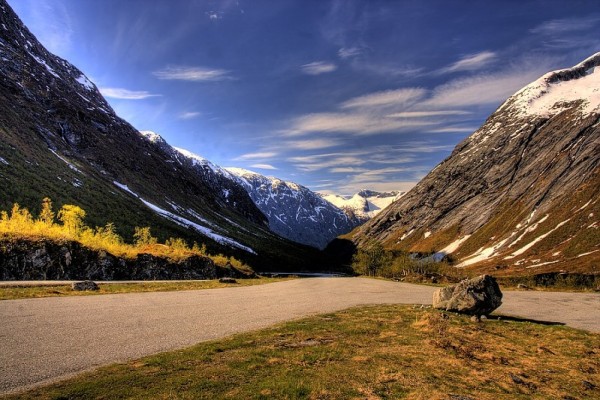
From the Balkans to the Baltic
- Where: Vaclav Havel Library, Řetězová 7, Prague
- When: June 5, 2014, 19:00 – 21:00
Across countries full of divisions and peculiarities with poets linked by the word:
Dejan Matić / Željko Perović / Ivo Stropnik / Zoran Pevec / Ivan Dobnik / Genowefa Jakubowska-Fijałkowska / Małgorzata Lebda / Maciej Melecki.
Presentation of Franciszk Nastulczyk’s collection Průvodce slepého psa (Blind Dog’s Guide) (Protimluv, Ostrava 2014). Vlaďka Kužílková will recite poems in the Czech translation.
The evening will be hosted by Lenka Kuhar Daňhelová and Peter Kuhar.
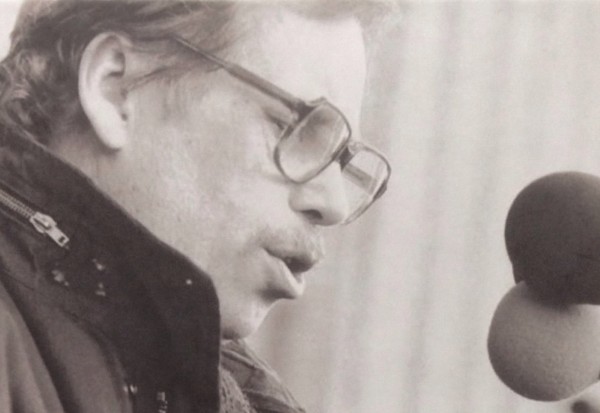
Civic Society and Human Rights in Eastern Central Europe
- Where: Vaclav Havel Library, Řetězová 7, Prague
- When: June 9, 2014, 19:00 – 21:00
The German language publication Bürgerliche Gesellschaft und Menschenrechte im östlichen Mitteleuropa, jointly produced by the Faculty of Arts at Charles University and Munich’s Collegium Carolina, focuses on subjects that are key to the philosophy of Václav Havel. Some 14 writers from the Czech Republic, Germany, Slovakia and Poland have contributed to it and most will take part in this presentation of the book.
The discussion will be led by editors Robert Luft, Miloš Havelka and Stefan Zwicker and take place in Czech and German; translation from German will be provided.
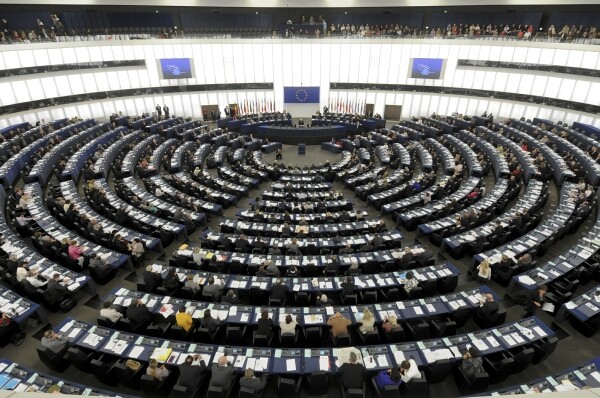
The European elections: what do they mean for the Czech Republic?
- Where: Vaclav Havel Library, Řetězová 7, Prague
- When: June 10, 2014, 19:00 – 21:00
A debate aimed at helping answer the following questions: What do the May elections to the European Parliament actually mean? What can the 21 new Czech MEPs achieve? How should the Czech government act in European politics in future?
Guests: Jana Maláčová (Úřad vlády), Radko Hokovsky (director of the think tank European Values), Vladimír Bartovic (deputy director of the EUROPEUM Institute for European Policy).
Chaired by Jakub Janda.
In cooperation with the think tank European Values.
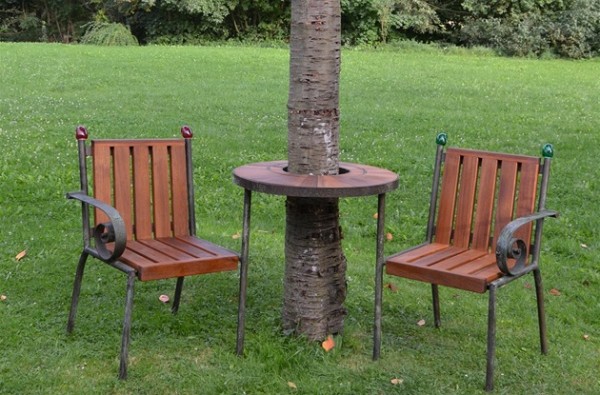
Ceremonial unveiling of Havel’s Place in České Budějovice
- Where: Campus of University of South Bohemia in České Budějovice
- When: June 11, 2014, 11:00 – 12:00
After Washington, Dublin, Barcelona and Prague, a Havel’s Place is now set to stand in České Budějovice. Bořek Šípek’s piece takes the form of two chairs by a table with a Linden tree growing through it, symbolising the democratic dialogue that was essential to Václav Havel.
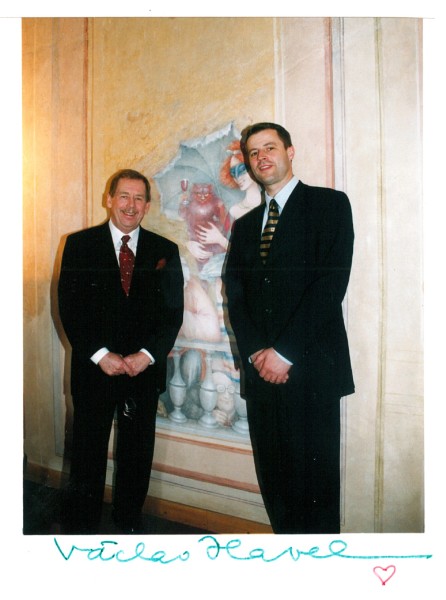
Do we risk a new Cold War?
- Where: Vaclav Havel Library, Řetězová 7, Prague
- When: June 11, 2014, 19:00 – 21:00
Talks in English – Petr Kolář and Václav Havel
The third in a short series of talks in English with colleagues and friends of Václav Havel. Petr Kolář has held a number of positions in the Czech Foreign Service, including Head of Department, Deputy Minister of Foreign Affairs, advisor to President Václav Havel for European integration and the Balkans, and Ambassador to Sweden (1996–1998), Ireland (1999–2003), the US (2005–2010) and the Russian Federation (2010–2012). With this broad experience, he will talk about recent developments in international relations, including the risk of a new “Cold War”.
Chaired by writer and journalist David Vaughan.
Petr Kolar held a number of positions in the Czech Foreign Service, including Head of Department, Deputy Minister of Foreign Affairs for bilateral relations, advisor to the President Vaclav Havel for European integration and the Balkan, and Ambassador to Sweden (1996-1998), Ireland (1999-2003), the US (2005-2010) and the Russian Federation (2010-2012). In 2013 he served as Director of Forreign Affairs for the PPF Group, where he primarily focused on Asia. Currently, he works in international law firm Squire Sanders, where he focuses his practice on commercial diplomacy and global government relations. Petr provides clients with analytic and diplomatic expertise, representing them before the legislative and executive branches of government.
David Vaughan is a broadcaster, journalist and university lecturer. He is author of the book “Battle for the Airwaves” on the role of the media in the run-up to WWII. For eight years he was editor-in-chief of Radio Prague, the international service of Czech Radio, and prior to that he was the Prague correspondent of the BBC. He has won national and international awards for his radio work. His documentary novel “Slyšte můj hlas” (Hear My Voice) was serialized by Czech Radio in 2013 and is to be published this year.
Admission free; no reservation required
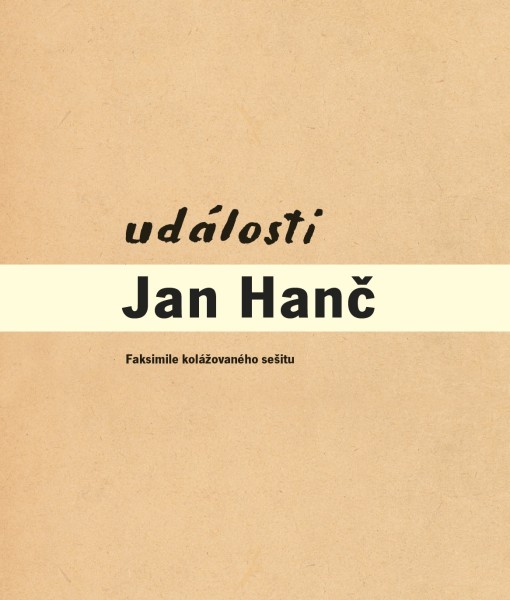
Reflections on the pre-1989 period in literature
- Where: Vaclav Havel Library, Řetězová 7, Prague
- When: June 12, 2014, 19:00 – 21:00
A discussion involving authors from Central European countries linked by a similar historical experience: Mirka Ábelová (Slovakia), Peter Kocsis (Hungary), Franciszek Nastulczyk (Poland), Max Ščur (Belarus). Chaired by Jáchym Topol.
The evening is taking place in cooperation with the Babylon review and with the support of the Visegrad Fund, the City of Prague and the State Culture Fund of the Czech Republic.
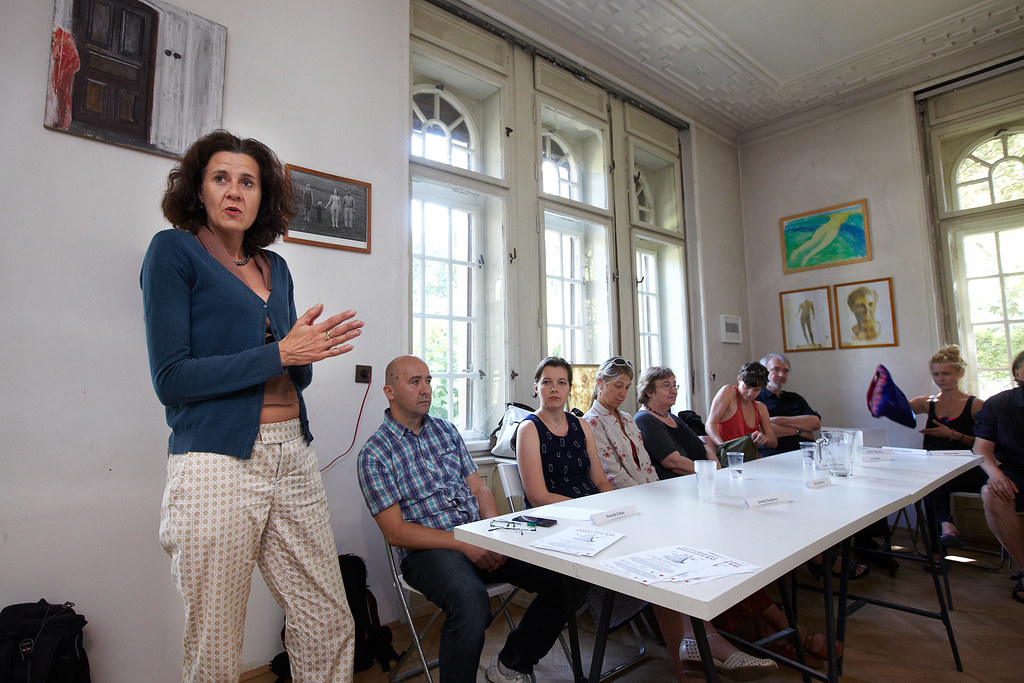
The Past in Us
- Where: The Běhal Fejér Institute, Pevnostní 8, 160 00 Praha 6
- When: June 13, 2014, 15:00 – 22:00
The conference “The Past in Us”, examining the portrayal of the past in the literature of Central European countries, will be attended by writers, critics, journalists and publishers including Mirka Ábelová, Petr Borkovec, Miloš Doležal, Adam Drda, Jaroslav Formánek, Petra Hůlová, Bohdan Chlíbec, Peter Kocsis, Robert Krumphanzl, Monika Stehlíková, Max Ščur, Stanislav Škoda, Viktor Šlajchrt, Ondřej Štindl, Jan Šulc, Jáchym Topol, Czech Studies students and others.
Organised by the Václav Havel Library in cooperation with the Babylon review and the support of the Visegrad Fund, the City of Prague and the State Culture Fund of the Czech Republic.
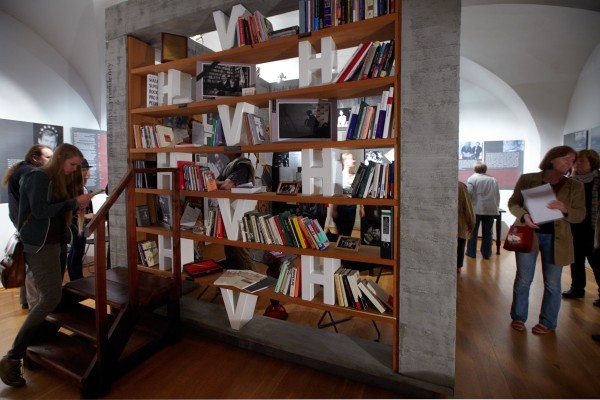
Night with Václav Havel and Bohdan Holomíček
- Where: Vaclav Havel Library, Řetězová 7, Prague
- When: June 14, 2014, 19:00 – June 15, 2014, 01:00
Audio recordings of Havel’s plays Audience, Largo Desolato and Redevelopment, or Slum Clearance will be played, while Havel’s court photographer Bohdan Holomíček will project pictures from his personal photographic records, some featuring VH, some not.
Music: Noční optika.
Held as part of the Prague Museum night project.
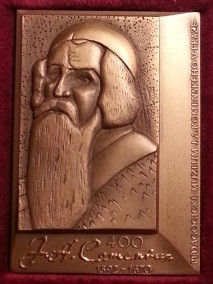
History of the Czech cultural and intellectual exile in North America
- Where: Castle Pardubice, Eastern Czech museum of Pardubice
- When: June 14, 2014, 09:30 – 18:30
The second annual conference of notable intellectuals in various fields of natural sciences, social sciences and humanities. The event is organized as a part of the Czech-American scholarly society The Comenius Academic Club [CAC].
The literary section (June 14th, 2014) will offer contributions in two panels:
a) History of the Czech cultural and intellectual exile in North America;
b) Translations and editions of Czech literature in North America / Northern American literatures in the Czech Republic.
Both panels are guaranteed by notable professionals in the fields and guests from USA, Canada, Poland, and the Czech Republic will participate.
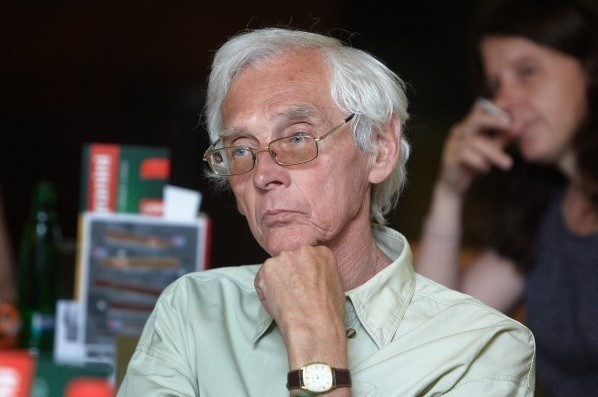
Oldřich Škácha 1941–2014
- Where: Vaclav Havel Library, Řetězová 7, Prague
- When: June 16, 2014, 19:00 – 21:00
Marie Fantyšová and Jiřího Stránský will recall Oldřich Škácha at a memorial event at which others are also welcome to join in. The photographer’s pictures of well-known figures and events from recent Czechoslovak and Czech history will serve as a loose guide to the evening and inspire the conversation.
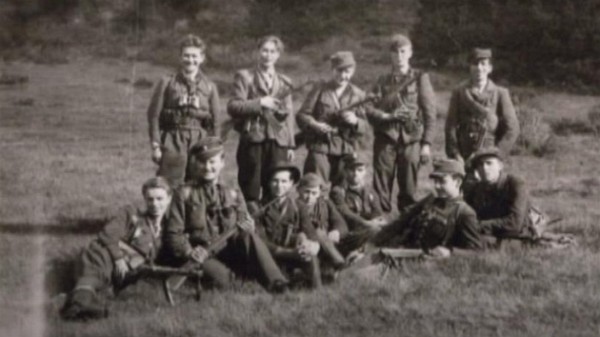
David Svoboda: The Ukrainian Insurgent Army – Ukrainian Nationalism During WW II and its Echoes Today
- Where: Vaclav Havel Library, Řetězová 7, Prague
- When: June 17, 2014, 19:00 – 21:00
Series of lectures by historian David Svoboda (Institute for the Study of Totalitarian Regimes) on the subject of Ukraine’s 20th century disputes and tragic milestones.
Photo (c) idnes.cz
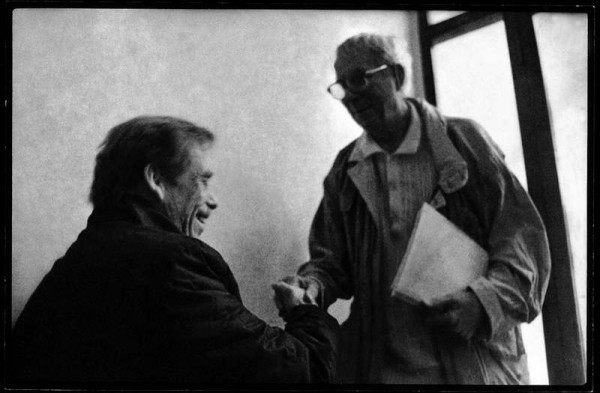
Jan Grossman: between literature and theatre
- Where: Vaclav Havel Library, Řetězová 7, Prague
- When: June 18, 2014, 19:00 – 21:00
An evening dedicated to the publication of collected writings by Jan Grossman (1925–1993), one of the most distinctive figures in Czech culture in the second half of the 20th century, in the areas of literary criticism, theatre studies, aesthetics and journalism. His productions of works by Havel, Hašek, Kafka and Jarry have entered the annals of world drama. Speakers will include Marie Málková-Grossmanová, Marta Ljubková, Jiří Pelán and Petr Šrámek, editor of the two-volume edition Mezi literaturou a divadlem (Between Literature and Theatre) (Torst). Jan Šulc will host.

All roads lead to Beijing
- Where: Vaclav Havel Library, Řetězová 7, Prague
- When: June 19, 2014, 19:00 – 21:00
Human rights: Is the Czech Republic capable of combining doing business with China and solidarity with Tibet? Or will it have to choose? Guests: Petr Drulák (First Deputy Minister of Foreign Affairs), Radek Špicar (vice president of the Confederation of Industry, director of the Aspen Institute), Jan Macháček (journalist) and Martin Bursík (leader of Liberal ecological party).
Journalist Kateřina Šafaříková will chair the debate.
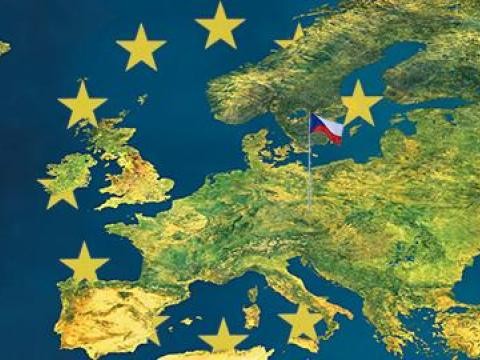
Czech visions of Europe?
- Where: Vaclav Havel Library, Řetězová 7, Prague
- When: June 26, 2014, 19:00 – 21:00
The project of European integration is undergoing a crisis which is at the same time a new opportunity. In connection with the 10th anniversary of the Czech Republic’s accession to the EU, the Academia publishing house has issued the book České vize Evropy? Manuál k naší evropské debatě (Czech visions of Europe? A Manual to a European Debate in the CR), raising a series of thought provoking questions that remain topical even after the recent European elections. Among those set to critically discuss European affairs are Jacques Rupnik, Roman Joch and editor Petr Hlaváček, representing the team behind the book; they will be joined by journalist Kateřina Šafaříková and Jan Michal, head of the Representation of the European Commission in the Czech Republic.
Jan Macháček will chair the debate.
Havel Channel
Havel Channel je audiovizuální projekt Knihovny Václava Havla, jehož cílem je šířit myšlenkový, literární a politický odkaz Václava Havla, bez ohledu na vzdálenost, zeměpisné hranice či nouzové stavy. Jeho páteř tvoří debaty, vzdělávací projekty a rozhovory. Velký prostor je věnován též konferencím, autorským čtením, záznamům divadelních inscenací a koncertům. Audiovizuální projekt Knihovny Václava Havla Havel Channel se uskutečňuje díky laskavé podpoře Karel Komárek Family Foundation.
Publications / E-shop
The central focus of the Library’s publishing programme is the life and work of Václav Havel, his family and close collaborators and friends. For clarity, the programme is divided into six series: Václav Havel Library Notebooks, Václav Havel Library Editions, Student Line, Talks from Lány, Václav Havel Documents, Works of Pavel Juráček and Václav Havel Library Conferences. Titles that cannot be incorporated into any of the given series but which are nonetheless important for the Library’s publishing activities are issued independently, outside the series framework.
Diary IV. 1974–1989
399,- CZK
Foolish Writing
299,- CZK
Havel to the Castle
149,- CZK
Kilián Nedory
199,- CZK
Case for a Novice Headsman
199,- CZK
I am not sad. Audience & Vernissage
129,- CZK
To the Castle and Back
249,- CZK
I am the Gypsy Baron
299,- CZK
Conferences & prizes
Václav Havel European Dialogues
The Václav Havel European Dialogues is an international project that aims to initiate and stimulate a discussion about issues determining the direction of contemporary Europe while referring to the European spiritual legacy of Václav Havel. This idea takes its main inspiration from Václav Havel’s essay “Power of the Powerless”. More than other similarly focused projects, the Václav Havel European Dialogues aims to offer the “powerless” a platform to express themselves and in so doing to boost their position within Europe.
The Václav Havel European Dialogues is planned as a long-term project and involves cooperation with other organisations in various European cities. Individual meetings, which take the form of a conference, are targeted primarily at secondary and third-level students, as well as specialists and members of the public interested in European issues.
Prague 2022Olomouc Prague 2023PragueMnichov 2020Brussels 2020Prague 2019Brussels 2019Prague 2018Brussels 2018Europe at the Crossroads (e-book)Prague 2017Brussels 2017Prague 2016Brussels 2016Prague 2015Brussels 2015Brussels 2014Berlin 2014Prague 2014 - J. GauckBruges 2014Prague 2014
Václav Havel Human Rights Prize
The Václav Havel Human Rights Prize is awarded each year by the Parliamentary Assembly of the Council of Europe (PACE) in partnership with the Václav Havel Library and the Charta 77 Foundation to reward outstanding civil society action in the defence of human rights in Europe and beyond.
11th Year of the Prize (2023)10th Year of the Prize (2022)9th Year of the Prize (2021)8th Year of the Prize (2020)7th Year of the Prize (2019)6th Year of the Prize (2018)5th Year of the Prize (2017)4th Year of the Prize (2016)3rd Year of the Prize (2015)2nd Year of the Prize (2014)1st Year of the Prize (2013)History of the prize
Havel - Albright Transatlantic Dialogues
Since the first Václav Havel Transatlantic Dialogues at GLOBSEC and FORUM 2000 conferences last year, we have lost another stalwart advocate of the transatlantic bond and of the need to face threats to democracy and international order together on both sides of the Atlantic, the former US Secretary of State Madeleine Albright. In view of the close bond between Václav Havel and Madeleine Albright and, after Havel's death, between the Secretary and the Library, the Václav Havel Library, with the approval of Madeleine Albright's family, renamed and rebranded the program as The Havel-Albright Transatlantic Dialogues (HATD), after the two major figures with roots in Central Europe who have personified the bond. Together, Václav Havel and Madeleine Albright symbolize the transatlantic relationship and the fundamental values underpinning it perhaps better than any other two people in recent history. The upcoming Dialogues “The Indispensable Woman: The Legacy of Madeleine K. Albright”, at the FORUM 2000 conference on September 1, and at the “Havel and our Crisis” conference at Colby College, ME, on September 28, will thus become venues for a well-deserved tribute to the pair we all respected and admired.
Transatlantic Dialogues 2021Transatlantic Dialogues 2022HATD 2022 Prague
Václav Havel
Václav Havel
* 5. 10. 1936 Praha
† 18. 12. 2011 Hrádeček u Trutnova
- spisovatel a dramatik, publicista a filozof
- jeden z trojice prvních mluvčích Charty 77
- vůdčí autorita československé společenské změny v listopadu 1989
- poslední prezident Československa a
- první prezident České republiky
- celoživotní zastánce lidských práv a svobod doma i ve světě.
Educational projects
Archive / Documentation centre / Research projects
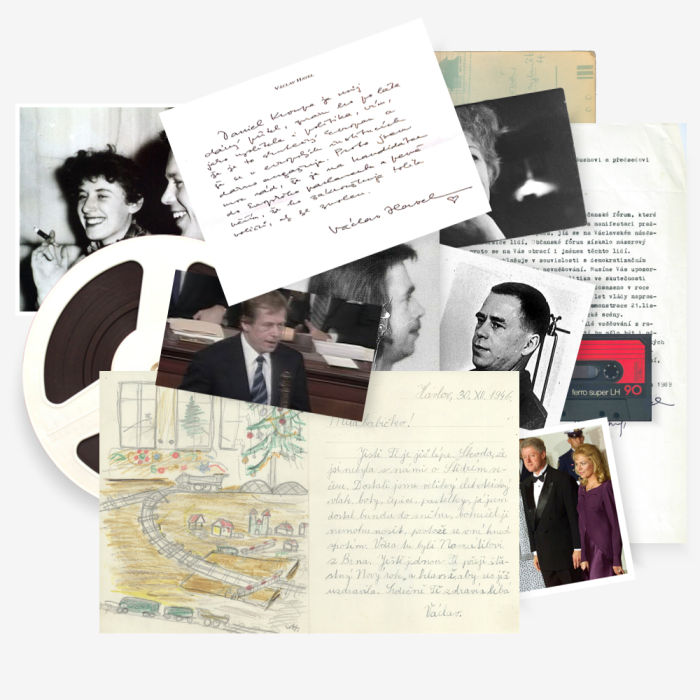
The Václav Havel Library is gradually gathering, digitizing, and making accessible written materials, photographs, sound recordings and other materials linked to the person of Václav Havel.
- 70895 records in total
- 27824 of events in the VH's life
- 2831 of VH's texts
- 2125 of photos
- 403of videos
- 568of audios
- 6604of letters
- 15101of texts about VH
- 8264 of books
- 40647of bibliography records
Access to the database of the VHL’s archives is free and possible after registering as a user. Accessing archival materials that exist in an unreadable form is only possible at the reading room of the Václav Havel Library, Ostrovní 13, 110 00 Prague 1, every Tuesday (except state holidays) from 9:00 to 17:00, or by prior appointment.
We will be glad to answer your queries at archiv@vaclavhavel-library.org.
Sign in (registered users only)
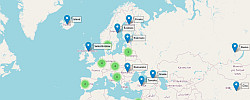
Havel in a nutshell
The virtual exhibition Václav Havel in a Nutshell places the life story of Václav Havel in the broader cultural and historic context in four chronologically distinct chapters with rich visual accompaniment. The exhibition is supplemented by the interactive map Flying the World with Václav Havel, which captures in physical form Havel’s global “footprint”.
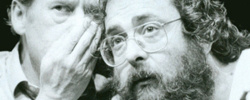
Vladimir Hanzel's revolution
Collage of recollections, images and sound recordings from Vladimír Hanzel, President Václav Havel’s personal secretary, bringing the feverish atmosphere of the Velvet Revolution to life.
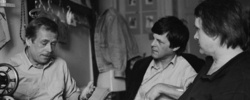
Václav Havel Interviews
A database of all accessible interviews given to print media outlets by the dramatist, writer and political activist Václav Havel between the 1960s and 1989. The resulting collection documents the extraordinary life story of an individual, as well as capturing a specific picture of modern Czechoslovak history at a time when being a free-thinker was more likely to lead to jail than an official public post.
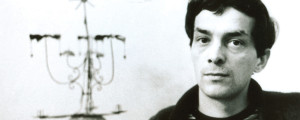
Pavel Juráček Archive
The Pavel Juráček Archive arose in February 2014 when his son Marek Juráček handed over six banana boxes and a typewriter case from his father’s estate to the Václav Havel Library. Thousands of pages of manuscripts, typescripts, photographs, documents and personal and official correspondence are gradually being classified and digitalised. The result of this work should be not only to map the life and work of one of the key figures of the New Wave of Czechoslovak film in the 1960s, but also to make his literary works accessible in the book series The Works of Pavel Juráček.
The aim of the Václav Havel Library is to ensure that Pavel Juráček finds a place in the broader cultural consciousness and to notionally build on the deep friendship he shared with Václav Havel. Soon after Juráček’s death in 1989 Havel said of him: “Pavel was a friend of mine whom I liked very much. He was one of the most sensitive and gentle people I have known – that’s why I cannot write more about him.”
All about Library
The Václav Havel Library works to preserve the legacy of Václav Havel, literary, theatrical and also political, in particular his struggle for freedom, democracy and the defence of human rights. It supports research and education on the life, values and times of Václav Havel as well as the enduring significance of his ideas for both the present and future.
The Václav Havel Library also strives to develop civil society and active civic life, serving as a platform for discussion on issues related to the support and defence of liberty and democracy, both in the Czech Republic and internationally.
The main aims of the Václav Havel Library include
- Organizing archival, archival-research, documentary, museum and library activities focused on the work of Vaclav Havel and documents or objects related to his activities, and carries out professional analysis of their influence on the life and self-reflection of society
- Serving, in a suitable manner, such as through exhibitions, the purpose of education and popularisation functions, thus presenting to the public the historical significance of the fight for human rights and freedoms in the totalitarian period and the formation of civil society during the establishment of democracy
- Organizing scientific research and publication activities in its areas of interest
Podpořte nás
We are well aware that freedom and democracy must be nurtured. Here at Ostrovní 13, but also on the audiovisual platform Havel Channel, we strive to do so through our own educational programmes, talks, discussion meetings, books, exhibitions, concerts, theatre performances. We honour Václav Havel's legacy and wish that the Library be a living organism and open to all. That is why our programme is free of charge for everyone. This would not be possible without regular financial support from our supporters. Become one of them...
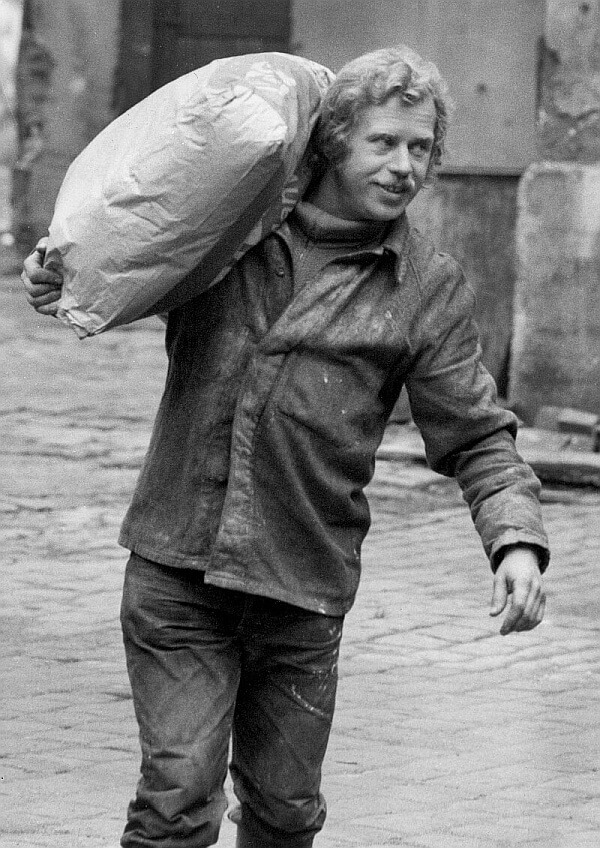
Support us with a financial donation
Does our work make sense to you and do you want to support the activities of the Vaclav Havel Library?
You can easily make a one-time payment by scanning the QR code.
Would you like to contribute regularly? Then we invite you to become a member of the Friends of the Vaclav Havel Library Club. What are the benefits of membership? Find out more.
Help us expand the archive
The Vaclav Havel Library manages an archive of writings, documents, photographs, video recordings and other materials related to the life and work of Vaclav Havel. This archive is predominantly in digital form. If you or someone close to you owns any original texts, correspondence, photographs, speeches or any other work by Vaclav Havel, we would be grateful if you could contact us.
You can donate in other ways too
Supporting a specific charitable or public benefit organization whose activities you appreciate or have been supporting for a long time is also possible through a will. This form of donation is quite common abroad, but in the Czech Republic this tradition is only just taking root.
Share information about us
The Vaclav Havel Library is open to media and promotional cooperation, mutual sharing of links, publishing our banners or information about our events.
For more information, please contact us.
Donations have their rules
At the Vaclav Havel Library, we uphold a transparent, responsible and ethical way of dealing with all those who contribute to fulfilling our purpose and implementing our strategy. Our code of ethics summarizes the basic rules of donations.
Get involved in volunteering
Would you like to get involved as a volunteer? That's great. We welcome anyone who wants to help our work.








